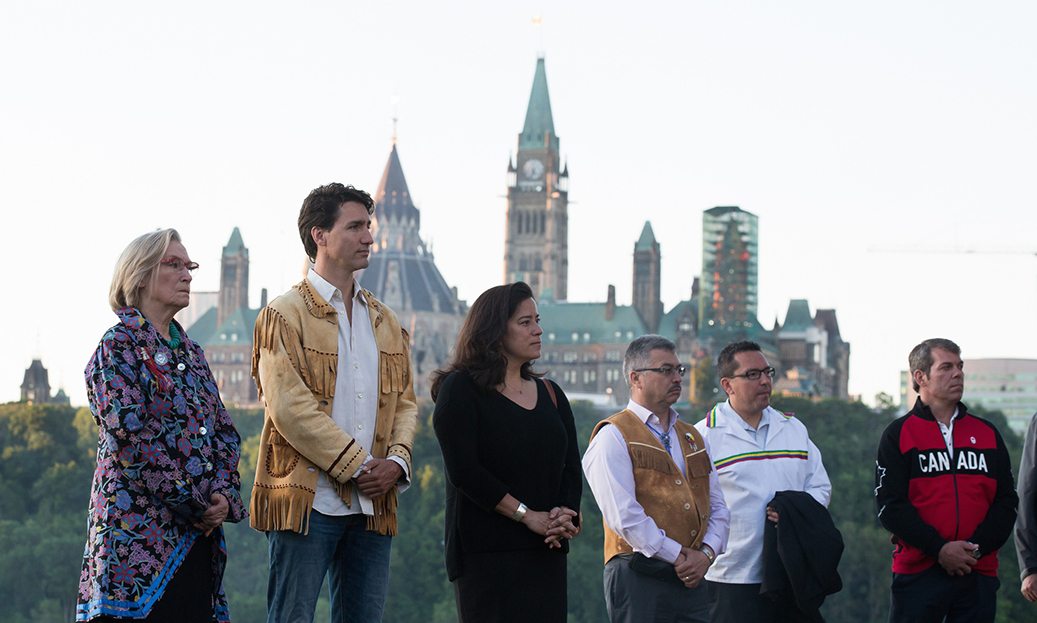It looks like those who advocated for the long-awaited national inquiry into murdered and missing Indigenous women and girls will be waiting a little while longer.
Despite the promise from Liberal Prime Minister Justin Trudeau that the national inquiry would be his first order of business, it has been 19 months since his election and the inquiry hasn’t held a single day of hearings. Although the commissioners held two soft launches in September 2016 and February 2017 promising to launch the hearings soon, the inquiry has not started, nor will they hear from the families until fall 2017.
Given that the commissioners were given exceptionally limited time to conduct the inquiry, the fact that they have already used up nine of the 26 months allocated to them is a major concern. At this point, the commissioners have very little to show for either the time used or the money spent to date — more than 10 per cent of its $53 million budget.
Given the lack of communication from the commissioners to date, we are all left wondering what is going on.
Equally concerning are reports that the federal government has been behind some of the delays by refusing to share its lists of potential witnesses with the commissioners or advance adequate funding to allow much-needed staffing to occur.
The long list of Indigenous families, leaders and advocates raising public concerns has been met with extended periods of silence. Recent cancellations of scheduled meetings of the inquiry have led to increased criticism by the same Indigenous families and advocates who originally pushed so hard for the inquiry. There are even calls for the inquiry to be “reset” both in terms of the panel of commissioners and the inquiry format itself.
But, as problematic as all this administrative mess is — and it could very well unravel the inquiry — it is relatively minor in comparison to the fact that the inquiry, legally speaking, is fatally flawed.
Even if the federal government had ensured the inquiry started earlier in Trudeau’s term, and even if the commissioners had been able to quickly launch hearings, neither of these conditions could save the inquiry from its flawed Terms of Reference.
The Terms of Reference lack the two areas of inquiry that were most important to Indigenous families, leaders and advocates:
1. A review of all the known police case files of murdered and missing Indigenous women and girls and;
2. A comprehensive review and investigation of police behaviour, specifically racism, abuse and sexualized violence of Indigenous women and girls by police forces.
Yet, these two things are specifically exempted or protected from review in the terms, forcing witnesses who want to give evidence about these issues, to go back to the very same police forces that committed the flawed investigations of their missing or murdered loved ones, or the same police forces that failed to act on abuses by their officers.
There is no way to save this inquiry from such fatal flaws. The provinces and territories all passed orders-in-council to allow the inquiry to proceed in their jurisdictions based on the terms as drafted — in other words, based on these two exemptions. Yet this flies in the face of what Indigenous women, leaders and advocates have long requested and what the minister heard in the national engagement sessions leading up to the drafting of the terms.
Despite the Human Rights Watch report about police officers sexually abusing Indigenous women and girls in British Columbia with impunity; or the police officers in Val D’or, most of whom will not face charges for allegations of ongoing sexualized abuse of Indigenous women and girls in Quebec; or the rampant sexualized violence and discrimination within the RCMP as evidenced by the class action by its female members — none of this will be open for examination.
At best, the commissioners might be able to look at systemic discrimination within policing policy — but nothing that gets to heart of why so many Indigenous women fear police, and why so many of their investigations, or lack thereof, have been challenged by the families. This poses a real risk that we will end up with an inquiry that is more damaging than helpful. We could end up with a report like that of commissioner Wally Oppal from the Pickton inquiry which hints at generalized police failures in investigations but doesn’t shine a light on the darker side of policing.
One of the worst outcomes would be a report that presents a general historical overview of colonization, a recap of the well-known socioeconomic problems plaguing First Nations or one that represents the voices of so few Indigenous witnesses that it misses the root problems altogether.
The inquiry terms are already biased toward violence in general and best practices related to violence prevention and safety. This has already led many commentators to focus on domestic violence, which is part of the issue, but by no means the whole issue. Such an unstructured inquiry means we could end up with a report on the already well-documented research on domestic violence but have nothing about police violence for example.
Given that the terms also focus the inquiry on the “vulnerabilities” of Indigenous women and girls as opposed to failures of federal, provincial and municipal governments and service agencies to protect the human rights of Indigenous women and girls — the inquiry risks missing the whole point. The fatal flaws of the Terms of Reference are reason enough for a reset of the inquiry.
There is no shame in learning from the lessons of the Truth and Reconciliation Commission’s reset and making sure that the thousands of murdered and missing Indigenous women and girls, their families and communities get the inquiry they asked for and the justice they deserve.
This article was originally published in Lawyer’s Daily.
Photo: Adam Scotti/PMO
Like this article? rabble is reader-supported journalism. Chip in to keep stories like these coming.




